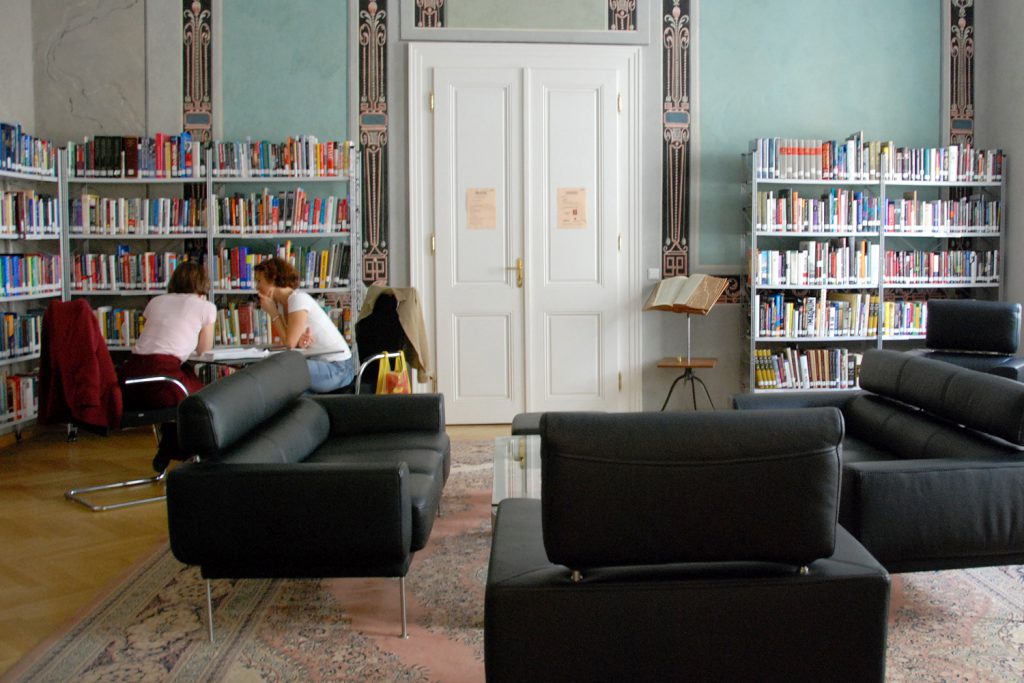Douglas Morrow: It takes a while for Czechs to open up, but once they do, you’re friends for life
After having worked in Iraq, Egypt, Ukraine, Bangladesh, and Russia, he became the CEO of American Culture Centers in the Czech Republic. What attracted him, along with many other Americans, to the heart of Europe? And what surprised him about Czechs? Douglas Morrow, an American diplomat, talked about the differences and similarities between the two nations, studying in the US, America’s strengths, and the Slavic temper.
Even though we share the same values, like democracy, freedom or the importance of education, Czechs and Americans have evolved into two different nations. Douglas Morrow knows both nations quite well, running the American Centers, a cultural project of the U.S. Embassy, in Prague, Brno, and Pilsen. What are the strengths and downfalls of our neighbors overseas, based on a native American? “What I love about Americans is their risk tolerance. If you go to Silicon Valley and ask an investor to give you money, they will say ‘tell me about all of the times you failed’. And if you haven’t failed in life, they won’t give you the money, because they think you haven’t learned the lessons you need to learn.” Doug Morrow goes on to compare this attitude with his experiences in France, where the saying ‘once a failure, always a failure’ is a common belief.
Even though the deputy believes that Americans should cultivate a broader perspective on history, their approach to the subject could be a strength, too. “Because we are a so much newer country, we’re not invested in a particular way of being that I think Europeans are. We’re not afraid of failure, we make mistakes, can accept them and learn from them, always striving to be a better country.”

Even after having worked in several other European countries, he admits that learning how unique the Czechs and their culture are was a surprise for him, in both positive and negative ways. While Americans may be smiling all the time, it’s not always a deep feeling of true friendship, and it takes a while for Czechs to warm up to others. “I even heard a Slavic saying ‘only crazy people smile for no reason’, and I think it’s true for the Slavs. But once they open up, you’re friends for life,” says the diplomat.
As an American in Europe, he encounters numerous preconceptions towards his country. And how to confront these assumptions? Doug Morrow believes that education is the key. “In the American Embassy, we offer a program in which Czech high school students are sent to study in the US for a year, coming back as the most credible American ‘ambassadors’, having seen the States from a Czech perspective. And since Czechs are much more likely to believe a story told about America through Czech eyes, we want to bring as many Czechs to the US as possible.”
When studying in the US, Czechs cannot only improve their English and get to know the country, but also experience a different educational system. “The primary role of an American university professor is to elicit discussion with the students, rather than simply deliver information. Therefore, the students need to be more self-reliant, willing to push boundaries and to be challenged,” says Doug Morrow.
Just as many Europeans desire to study in the US, more and more Americans wish to come to the heart of Europe. And what attracts them? “First of all, it is stunningly beautiful. Everything is jaw-droppingly beautiful, everywhere you go. Especially if you are coming from a city in the States with nothing but square grey buildings. Czech artistry, love of beauty and craftsmanship is so evident everywhere. And in my opinion, Prague is the most beautiful city on the Earth,” he concludes.
Text vznikl v rámci kurzu Angličtina pro žurnalisty.




